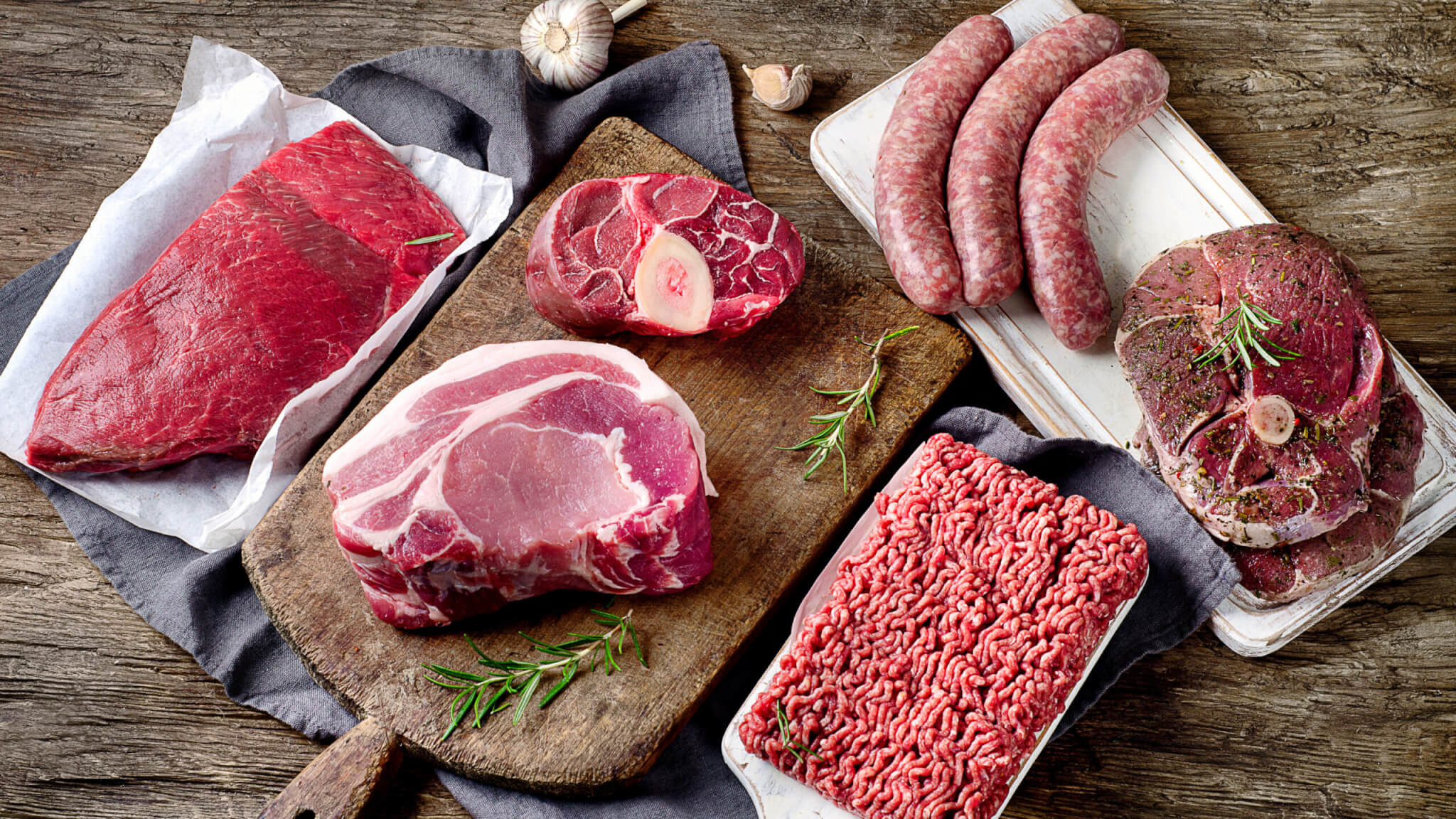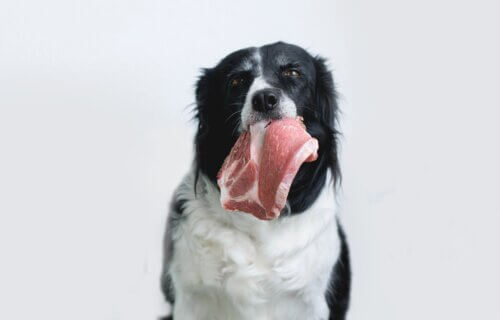BRISTOL, United Kingdom — Owners should not be feeding their dogs raw meat. Researchers from the University of Bristol have revealed a concerning link between feeding dogs uncooked meat and an increased risk of excreting antibiotic-resistant E. coli.
The study, which involved 600 healthy pet dogs, found that E. coli, a bacterium that can cause food poisoning and urinary tract and bloodstream infections, becomes resistant to a widely used antibiotic called ciprofloxacin when dogs are fed raw meat. Ciprofloxacin belongs to a group of antibiotics known as fluoroquinolones, which are considered critically important by the World Health Organization for treating bacterial infections in humans and animals.
The research focused on identifying ciprofloxacin-resistant E. coli in the intestines of healthy pet dogs. Dog owners had to complete surveys providing details about their dogs, their diets, the environments they frequented, and any history of antibiotic treatment.
Statistical analysis of the survey data, combined with microbiology data, revealed that feeding dogs uncooked meat was the primary risk factor associated with the excretion of antibiotic-resistant E. coli in the dogs’ feces. This finding is consistent with previous studies that have suggested a link between dogs consuming raw meat and the presence of resistant E. coli.
In the United Kingdom, efforts to reduce ciprofloxacin use in medical practice have led to a decline in ciprofloxacin resistance in E. coli infections in humans. Additionally, the use of fluoroquinolones to treat farm animals has nearly ceased in the U.K. However, worldwide, the use of these antibiotics and the prevalence of resistance to them remain high.
Scroll down to see the best ways of safely cooking meat

“Our aim was not to focus on raw dog food, but to investigate what might make a dog more likely to excrete resistant E. coli in its feces,” says Dr. Jordan Sealey, a research associate at the School of Cellular and Molecular Medicine (CMM) at the University of Bristol, in a university release. “Our study found a very strong association between excreting ciprofloxacin-resistant E. coli and feeding dogs a raw food diet.”
Study author Matthew Avison, professor and an expert in molecular bacteriology in CMM, pointed out that raw meat, whether intended for human consumption after cooking or for pets as raw dog food, is likely to be contaminated with antibiotic-resistant E. coli.
“Cooking kills the bacteria and good hand hygiene reduces the immediate risk of these bacteria being swallowed and getting into a person’s intestines,” says Avison. “Choosing to feed a dog raw meat means a person almost certainly has to handle the raw meat, and our research is clear that raw feeding also means pet owners are likely to be interacting with a pet that is excreting resistant E. coli.”
To mitigate these risks, researchers recommended several measures, including switching to non-raw diets for dogs or sourcing high-quality raw meat that can be cooked before consumption. They also suggested opting for meat from farms in countries with strict antibiotic usage policies in animal farming, as this reduces the chances of dogs ingesting resistant bacteria.

“As part of our response to the emerging crisis of antibiotic resistance, further incentive should be given to companies joining the raw dog food industry to source meat from farms with appropriate antibiotic usage policies, and to test meat for resistant bacteria before selling,” explains Avison. “Stricter limits should be set on the numbers of bacteria allowed in meat that is sold to be eaten uncooked than in meat sold to be cooked prior to eating.”
E. coli bacteria are naturally present in the intestines of humans and animals. Transmission usually occurs through poor domestic hygiene practices, such as inadequate handwashing after using the restroom or handling food contaminated with fecal material, including uncooked meat. When dogs excrete antibiotic-resistant bacteria into the environment, there is a risk of transmission to their owners and other individuals.
Once ingested, E. coli can remain in a person’s intestines for years before causing an infection. Globally, there are hundreds of thousands of urinary tract infections caused by E. coli annually, as well as thousands of bloodstream infections that can lead to life-threatening sepsis. Antibiotic-resistant E. coli infections are particularly challenging to treat, often resulting in hospitalization and increased mortality rates.
The study is published in the journal One Health.
What are the Recommended Cooking Temperatures for Raw Meat?
The United States Department of Agriculture (USDA) recommends specific internal temperatures for different types of meat to ensure the destruction of harmful bacteria. These temperatures are:
- Beef, pork, lamb, and veal steaks, chops, and roasts: 145°F (63°C)
- Ground meat: 160°F (71°C)
- Poultry: 165°F (74°C)
What are the Best Ways to Cook Raw Meat?
Several cooking methods can effectively eliminate bacteria in raw meat. These include:
- Boiling: Submerge the meat in a pot of boiling water until it reaches the recommended internal temperature.
- Baking: Preheat the oven to the recommended temperature and place the meat in a roasting pan. Cook until the internal temperature reaches the safe zone.
- Grilling: Preheat the grill to medium-high heat and place the meat on the grill grate. Cook, turning frequently, until the internal temperature reaches the safe zone.
- Stir-frying: Heat a large wok or skillet over medium-high heat. Add oil and the meat, stir-frying until the meat is browned and reaches the recommended internal temperature.
5 Tips for Safely Handling Raw Meat
When handling raw meat, it is crucial to follow proper hygiene practices to prevent the spread of bacteria:
- Wash your hands thoroughly with soap and water before and after handling raw meat.
- Use separate cutting boards for raw meat and other foods to avoid cross-contamination.
- Refrigerate or freeze raw meat promptly to prevent bacterial growth.
- Do not let raw meat drip onto other foods in the refrigerator.
- Clean and sanitize all surfaces and utensils that have come into contact with raw meat.
You might also be interested in:
- Feeding dogs raw meat could be bad for YOUR health
- Common parasite in undercooked meat linked to higher risk of rare brain cancer
- Multidrug-resistant bacteria less likely to be found on organic meat

